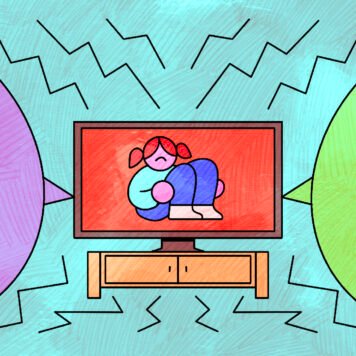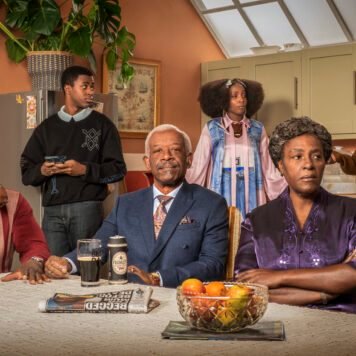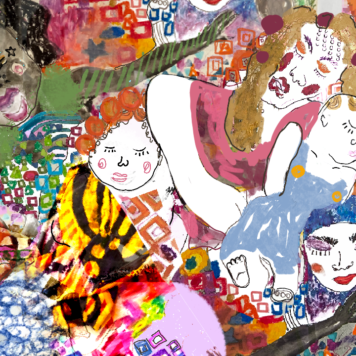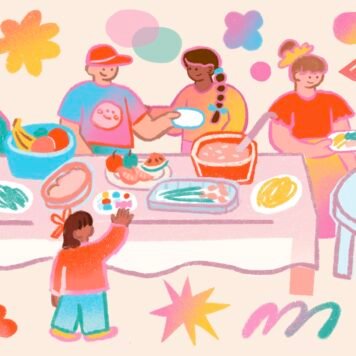Freshly poured pints, hugs from friends and family, and much-needed haircuts; for lots of people, the slow return to normalcy and the loosening of pandemic restrictions has been long awaited and immediately embraced. Sick and tired of almost a year of unexpectedly recurring lockdowns, it’s no surprise that thousands of people across the country have been flocking to parks and pubs with ferocity, eager to catch up with their loved ones in-person, after so long apart. There should be nothing but joy and happiness at what is hopefully the final chapters of a deadly pandemic, and the beginning of the blissful summer that we have all waited so long for.
Yet for many people, including myself, this hasn’t been the case.

Besides the obvious relief that the destructive impact of the pandemic is reducing, the end of lockdown restrictions has come with plenty of concerns and anxieties too. In my case, the days before restrictions were lifted felt unexpectedly daunting. Despite being a pretty extroverted person, the idea of having to return to the pre-pandemic pace of life was unappealing and slightly nerve wracking. I had gotten used to, and grateful for, the social boundaries allowed by the lockdowns. For the first time in a long time I had a ‘valid’ excuse to say no to seeing people, a reason to take time to myself, and the opportunity to be selective about who I spoke to and when. Reclaiming my boundaries has been a necessary lesson, one that I wish hadn’t taken a pandemic to learn.
Tala, a 22 year old teaching assistant in London, had feelings which mirrored my own. After being diagnosed with social anxiety and general anxiety disorder during her school years, she has always found it difficult dealing with social situations. “At the beginning of lockdown my social anxiety eased almost completely because I physically wasn’t allowed to see anyone, so it removed a significant source of stress for me. However, as the lockdown progressed I found myself becoming anxious at the idea of seeing people again and thought that over lockdown I had somehow lost the ability to socialise. I know for a lot of people lockdown was an incredibly difficult time for their mental health but I almost found myself wishing it would last longer because just the prospect of having to go out again triggered so much more anxiety”, explained Tala.
The pandemic’s impact on anxiety levels nationwide have been complex. Whilst the high levels of uncertainty, unemployment, grief and stressful home lives led to a spike in general anxiety and depression, many of those suffering with social anxiety found a moment of respite.
This is not to say there weren’t days of endless boredom and frustration. Zoom was a terrible substitute for in-person catch-ups. Personally, I missed meeting new people and exploring different places. A big part of me was desperate to return to atmospheric bars and loud parties where you could barely hear the person next to you. But there was the other part of me that had finally adjusted to this ‘new normal’. The part which was satisfied with seeing friends in the garden or the park and then calling it a day. As was the case for Tala and so many others, lockdown allowed me to reevaluate relationships and focus on the people who mattered most to me, to think more closely about who I really wanted to spend time with. I never considered myself as someone with social anxiety, but going from barely seeing anyone to seeing everyone all the time felt somewhat distressing. I was worried that my friendships would feel different, that I’d get overwhelmed by being a part of big group settings and exhausted by having to carefully formulate excuses to leave draining social situations, instead of simply pressing the ‘end call’ button and blaming it on WiFi issues.
Tala felt similarly. “I think the initial weeks of things opening up last summer caused a lot of frustration for me not just because of my social anxiety but also because of the stress surrounding contracting COVID-19, knowing that family members had passed away from it,” she said. “I think a year on from it I have gotten over the initial bout of anxiety caused by lockdowns easing, and if anything I have found myself trying to get out even more considering how many lockdowns we’ve had in London,” she added.
Yet the jolted opening and reopening of the UK impacted people differently. Tom, 19, spent the first lockdown in Devon with his family, and started university a few months later. “I think spending the first lockdown with my family definitely made university harder. I kind of dreaded having to be put into a new environment where I knew no one, and I was constantly worrying about having to socialise and how I would do this given the restrictions. The first few weeks were awful, I found it so hard to talk to people and meet new friends. Given there were no clubs or societies open, there was no ‘push factor’ that forced me out and helped me overcome my anxiety”, he said.
Now that a few months have passed since restrictions have loosened, Tom, Tala and I are learning new ways to adapt to the ‘newer normal’. In my case, I’ve been enjoying being busy again. My initial qualms feel pretty unfounded, and my previous worries have (for the time being) disappeared. There are still moments when I feel my social battery running low, and I’m learning to respond to that, instead of ignoring it all together. Politely declining plans without convoluted and unnecessary explanations is a hard skill to learn, but one that is essential for self-care.
“I’m just trying to take things slow and day by day,” said Tom. “I know the way I feel isn’t going to change overnight, but I’m just trying to make the most of the sun and pubs with people I know I feel comfortable around.”
For Tala, even though she’s appreciating post-lockdown interactions more, they can still be a struggle. “I have to push myself to get through my social anxiety as I still find that I can get anxious about simple things like going for dinner with friends in a public area. It seems like such a simple thing for some people but I grapple with it every day. Yet I’ve never regretted pushing myself and allowing myself to have fun. Also, as cheesy as it sounds, I have been trying to just have more conversations with strangers like giving a compliment or asking someone working at a store how they are doing. I know it doesn’t seem like much but to me it shows me how much I’ve grown because talking to new people has always caused me so much anxiety. I think because I feel confident in doing smaller things like that, it makes me feel better in general”, she expressed to me.
She added, “I think I used to hope that we returned to a new lockdown, however now not so much. I’ve realised that I don’t have to put myself in social situations that make me feel worse after. I’m enjoying finally setting my own boundaries”.
If you, or someone you know, is suffering from anxiety, the following resources might be helpful:

See more of Esther’s work on instagram













